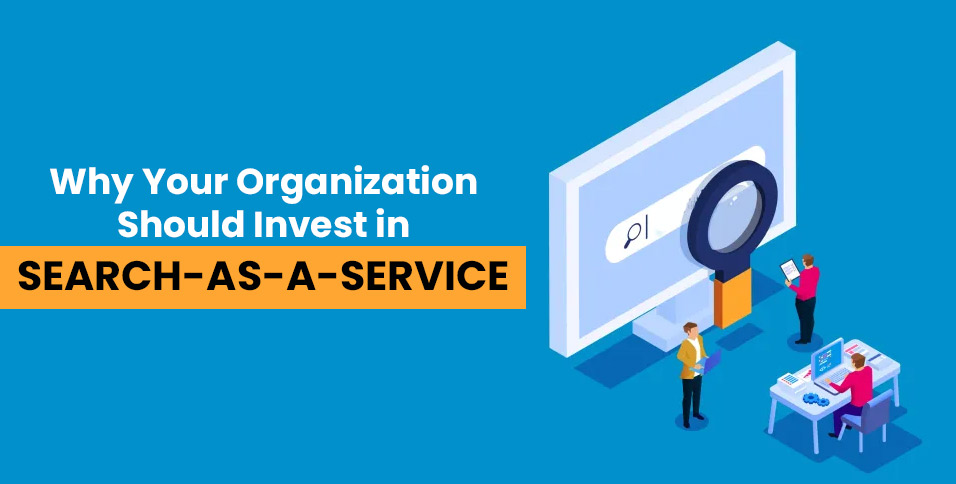With the digital space evolving, businesses must adapt to stay relevant. One of the many ways to achieve this is by investing in Search-as-a-Service (SaaS). But what exactly is it, and why is it beneficial for your business? Keep reading to find out.
Understanding the Concept of Search-as-a-Service

Alt text: Consumers benefit from an enhanced search experience as a result of Search-as-a-Service
In the simplest terms, Search as a Service is a software service model that allows users to outsource the search functionality of their websites or applications. Rather than developing and maintaining an internal search platform, businesses can offload this task to a third-party provider.
SaaS providers offer advanced, customizable search functionalities. They are easy to integrate, manage, and scale according to your business needs. This ensures your website users can always find what they are looking for, improving user engagement and satisfaction.
Several top tech companies offer Search-as-a-Service to businesses across several industries. The aim is to provide fast, relevant, and secure search results to users, thus enhancing their online experience.
The Importance of Instant, Relevant Search for Your Website
Today’s internet users are impatient. They expect immediate, accurate answers to their queries. If your website fails to deliver, they won’t hesitate to move to a competitor’s site. This is why speed is essential in search functionality.
Along with speed, the relevance of search results significantly impacts user experience. Users’ trust in your website will improve if they find what they’re searching for with minimal effort. Poorly optimized search can lead to user frustration, negatively impacting their experience.
SaaS handles both these factors effectively. It uses advanced algorithms to provide instant, relevant search results. Thus it plays a crucial role in improving the overall user experience of your website. Not only does this boost user satisfaction, but it also increases the chances of conversion and customer retention.
Notable Benefits of Implementing Search-as-a-Service

Alt text: A consumer receives personalized search results and an enhanced user experience due to Search-as-a-Service technology
One of the primary benefits of Search-as-a-Service is its scalability. As your business grows and your data increases, your search functionality needs to evolve as well. With SaaS, you can easily adjust your search function’s capacity to meet these changes.
Another benefit is it saves resources. Developing, maintaining, and updating an internal search platform is resource-intensive. By outsourcing this task, you can focus your efforts on other areas of your business.
SaaS also helps improve user engagement. By providing accurate, fast, and personalized search results, you can keep your users on your website longer. This not only improves user satisfaction but also contributes to increased revenue.
Why Organizations Should Consider Search-as-a-Service
Many organizations feel hesitant to invest in Search-as-a-Service. However, with the evolving digital landscape, having an effective search function is no longer an option— it’s a necessity. Users expect sophisticated, efficient, and personable search experiences. If you fail to meet these expectations, you risk losing potential customers.
SaaS not only helps meet your user’s expectations but also provides a competitive advantage. By delivering a superior search experience, you can stand out from your competitors. A high-performing search function also helps build trust with your users, boosting your brand reputation.
Additionally, it provides you with valuable insights into your users’ behavior. This includes what they are searching for, their preferences, and patterns of use. These insights can inform data-driven decisions and influence marketing and product development strategies.
Implementing Search-as-a-Service
The first step is to choose the right Search-as-a-Service provider. Take into account aspects like your budget, necessary search features, scalability options, and the provider’s reputation. Once selected, sign a contract and make sure the terms align with your business needs and expectations.
After this, conduct a thorough audit of your current search function. Identify its weaknesses and the areas in need of improvement. Share these findings with your provider so they can tailor their service to meet your specific needs.
Integration of the service might take some time, depending on the complexity of your website or application. Your provider will handle most of this process, ensuring the service is up and running smoothly.
Lastly, remember this is an ongoing process. You must consistently monitor and evaluate the performance of your search function to ensure it continues to meet your business objectives and user needs.
Altogether, investing in Search-as-a-Service can greatly enhance your online platform and lead to increased user satisfaction and business growth. Today, SaaS is more important than ever, as big data continues to increase exponentially across many industries. Businesses will need to leverage these services to stay competitive and use data effectively.
Also Read: How to Take Advantage of User Feedback for SaaS Development














